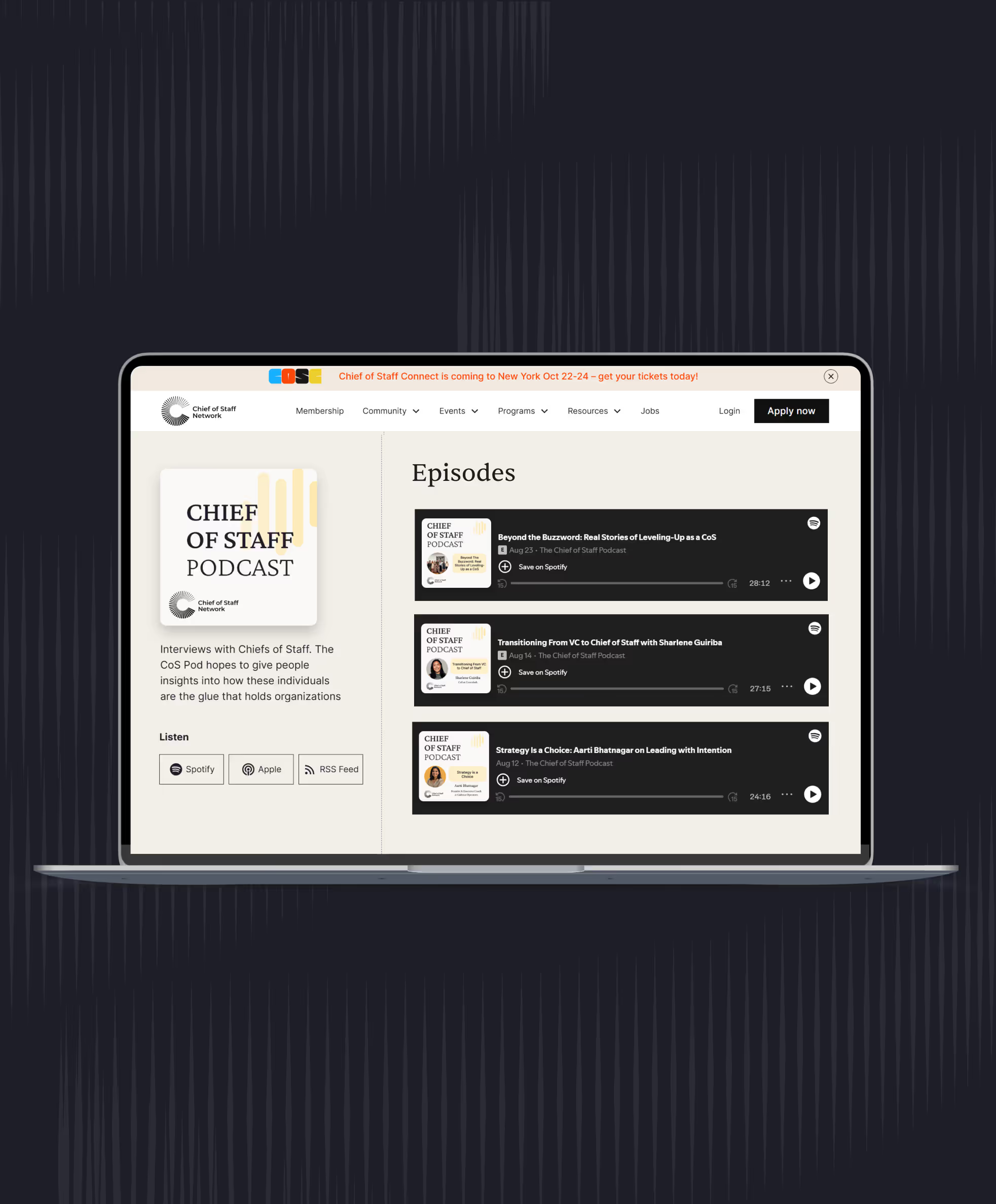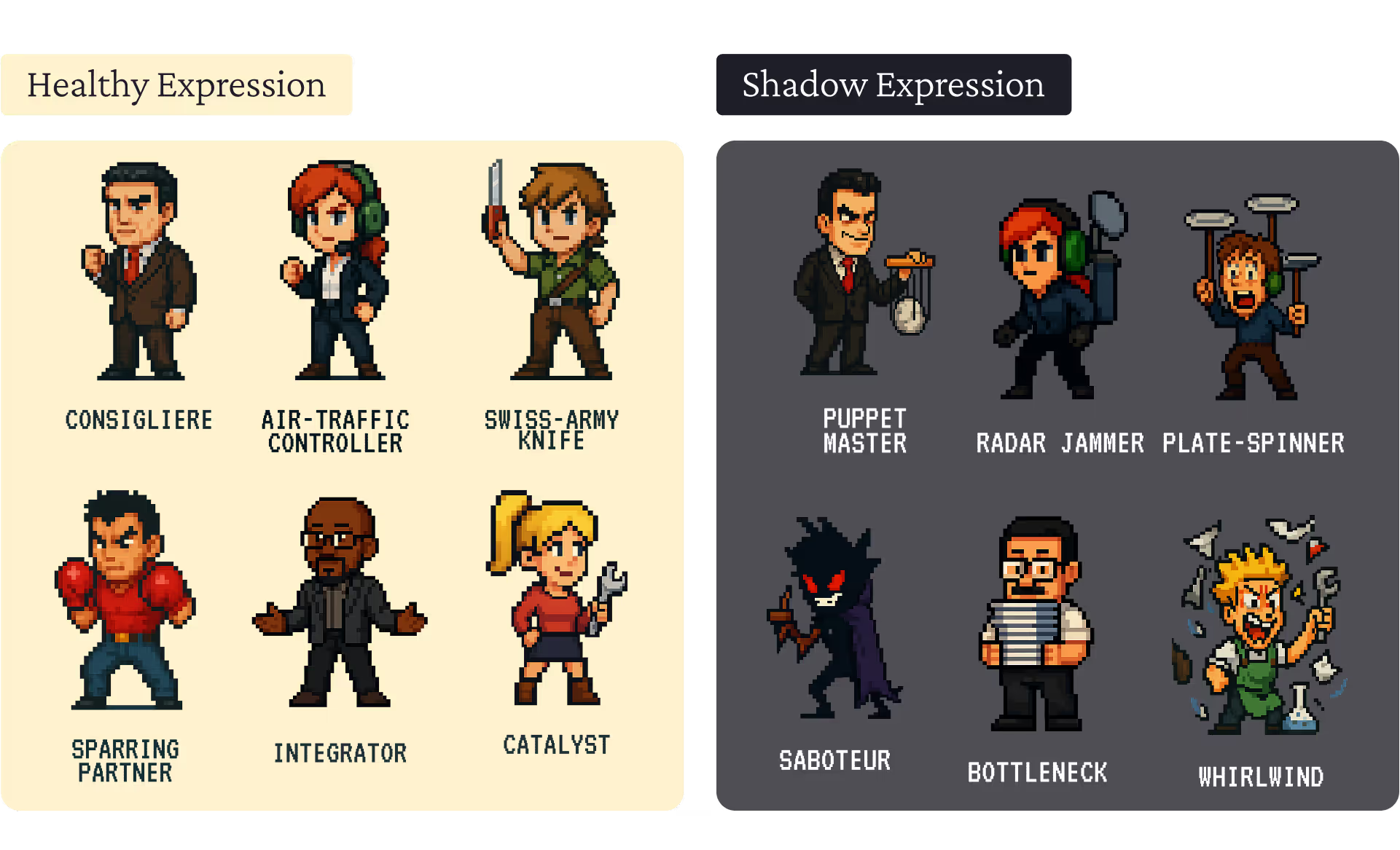Please see this Chief of Staff Network Member Spotlight with Winston Huang, the Chief of Staff at Cityblock Health.
How did you get into your CoS role at Cityblock Health?
It came a little bit serendipitously. And part of the fun thing about startups is that you have that sort of horizontal mobility. There were baby steps and side-desk work that I did and outside of my role (e.g. building our investor pitch decks, project managing Board presentations, etc.) that used other similar skill sets to a CoS role. And then there came a point in early to mid 2020 and then towards the end of the year, when the CEO identified a need for this CoS role.
What are you working on right now?
What I spend my time on is four main things:
- Building out the executive infrastructure.
This involves all of the processes from our Executive Leadership Team to our senior leaders, through to our all hands, and all the way back to our Board. The work involves asking and answering questions about how our company operates: What is our strategy for those forums? What do we want to achieve out of them? What is our board agenda? What priorities do we need to disseminate at all-hands? What decisions are we bringing to the ELT? How am I working together with teams that are bringing content in to make sure that they are decision-ready? So everything from strategy to execution, across the executive infrastructure, to build what feels like an effective high value, efficient operating case cadence focused on the leadership.
- Driving forward strategy and corporate development.
An example is building all the fundraising materials, where we’ve raised more than half a billion dollars over the last 2 years. I worked on building all the pitch decks, running the data rooms, and interfacing with investors. I’m involved with diligence of companies we look at from a partnership and M&A perspective. More recently, I’ve been deeply involved with out and validating our corporate strategy through a process that incorporates the board, our leadership team, and other external perspectives.
- Project managing a long tail.
This is to fill the negative space where it's seen. It's a mix of fighting random fires and adding bricks in random places that feel additive. Standing up an org chart vendor, as an example, is super small, but actually becomes high-impact. And you can imagine what are the 50 things related to that.
- Building and managing the executive assistant team.
That work includes building a clear process for levels of support criteria and support levels for executives, and building a home base for that team with clear professional development and career ladders.
What were some of the key learnings or breakthroughs you had while working as a CoS?
I think there's maybe two things around breakthroughs particularly on aspects of additive work that may not be obvious at first sight.
First, is that understanding one's locus of control is an effective and empowering thing. Sometimes your role is to be a decider and sometimes your role is to be an opiner. Other times, the role calls for sitting on the side, capturing information and holding people to account to the things that have been said. Other times, I have the source knowledge, which can make my opinion powerful and helpful. Understanding that all these roles can be effective is helpful and empowering. There is often an imposter syndrome of “am I doing the right thing,” and having the metacognition of knowing one’s role for each particular situation can help with those worries too.
Second, and this one might not seem like work, but actually becomes super important – this seat lets you play this game of telephone that requires having a strong strategist mind and then ability to distill concepts across the organization with high fidelity. Leaders are accountable for communicating cascading, but there's often a value to having an additive person who's able to spend more time sharing deeper context and giving color to complex items. It feels boring when it's framed as a game of telephone, but actually is really important because misalignment is a huge tax. If you're able to pass on a message or convey a message with 99% or 95% fidelity, that's gonna be so much better than a counterfactual of communicating with 60% or even 50% or 40% fidelity.
.png)
What’s the best professional advice that you’ve ever been given?
Be intentional about when and how you want to be planful. And then sometimes be okay with intentionally saying that you want to just go with the flow or ride the wave for a period rather than having a 1-3 year professional plan. A mental model that has resonated a lot is to think about the slope of your progression. If you feel like you're on a high-slope progression, you don't need to always wrack your brain with detailed 1, 3, 5 year goals. You can actually just feel comfortable knowing that for the next year, you'll turn off your brain on this stuff and just be in the trenches. There will come a point that maybe you start to feel that slope not as high as it once was. In those moments, it's helpful to step back out and ponder long term goals. Sometimes there's a trap of always feeling like you need to have a prescriptive plan that doesn't allow for flexibility for serendipity. So much of the highest value learning comes from serendipity, and that sometimes takes the conviction of knowing that riding the wave may be the best thing in a given moment in time.
What is your favorite tool?
Superhuman
What would you say to someone who wants to be a Chief of Staff?
A couple of things:
One is to ascertain that the role actually resonates with your skillset and interest. Part of that requires building a real sense of what the role actually is. There are a lot of sources out there – the HBR article, the First Round article – and I like those articles as anchor points of what this role looks like. There are a lot of benefits to the role around exposure to executives and their top strategic issues, but it also is a very low ego role, and it can be very thankless. Your superpower often has to be like a really good strategist but also really process driven and execution oriented. Understanding all of this, then reflecting on your own interests, is very important to be able to cut through the noise around the role
Two is more tactical – namely that because this is a role that is so nebulously defined – the time spent to define it for the specific context you are considering will not only pay dividends when interviewing with companies, but will also be important to understand what you’re walking into. Sometimes, hiring managers don't even know what they want to get out of the role. And so like when thinking about this role and having conversations later stage in interview processes, what's really important is not only just accepting the job description, but workshopping that job description, adding the time dimension, building out the associated SOW (statement of work), and once in seat, building in explicit, proactive, regular conversations with the principal around how the role develops over time. Going on autopilot can be a risk here, that you're not spending time with the right things, and that you're not consistently up-leveling.
.png)
If you are interested in learning more, check out our blog. If you have any questions or would like to learn more about membership, reach out to David at david@chiefofstaff.network





.avif)
.avif)

.avif)






